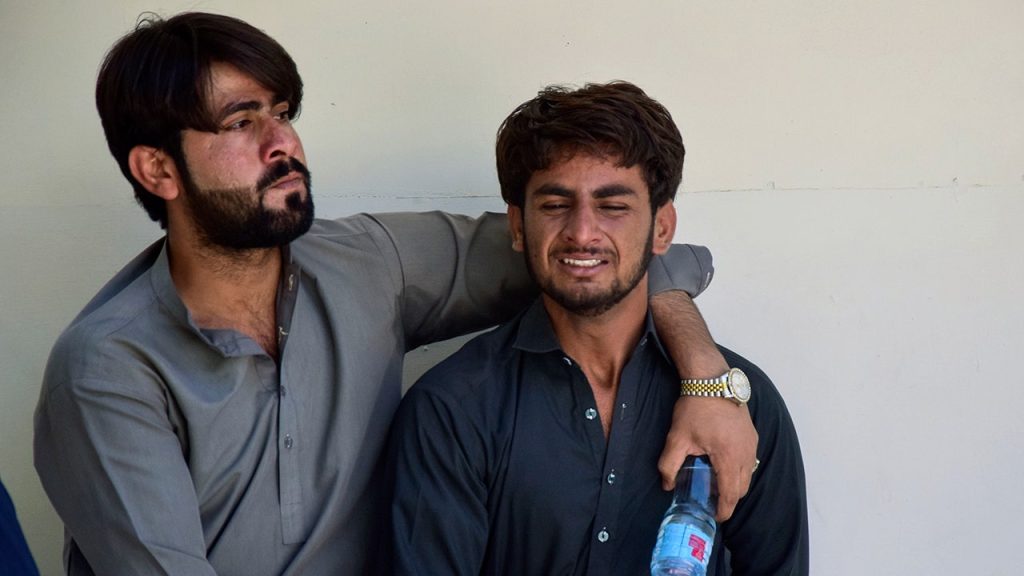A separatist group in Pakistan’s Balochistan claimed responsibility for a series of deadly attacks that killed more than 50 people, mostly civilians. The outlawed Balochistan Liberation Army group insisted that their attacks were not aimed at civilians, but rather at security forces and Chinese-funded development projects in the region. The attacks, carried out by approximately 800 well-trained fighters, marked a significant escalation in the group’s organized capabilities and threat level. The group warned of more intense and widespread attacks to come, indicating a dangerous and volatile situation in the region.
The Prime Minister of Pakistan, Shehbaz Sharif, declared that there would be no peace talks with the separatist group responsible for the attacks. Interior Minister Mohsin Naqvi also stated that there was no need for a large-scale military operation, asserting that the insurgents could be eliminated through police action. Despite the government’s refusal to engage in peace talks, provincial officials vowed to continue operations against the insurgents, promising to deal with them forcefully in response to the attacks that claimed the lives of security forces and innocent civilians.
The attacks in Balochistan have been linked to the broader geopolitical context of the China-Pakistan Economic Corridor (CPEC), a major infrastructure development initiative that aims to link western China with Pakistan’s Arabian Sea port of Gwadar. The Balochistan Liberation Army and other militant groups have specifically targeted Chinese nationals working on CPEC projects, viewing the initiative as a threat to their separatist aspirations. The recent attacks were seen as an attempt to undermine Chinese-funded development efforts in the region, further escalating tensions in an already volatile area.
Eyewitness accounts of the attacks provided harrowing details of the violence, with gunmen targeting and killing passengers on local transport vehicles. One witness, Sakina Nazir, described how her husband was ordered off a bus and subsequently killed by gunmen. The attacks left a trail of devastation and fear among the local population, leading to widespread condemnation of the separatist group responsible for the violence. The indiscriminate targeting of civilians further highlighted the ruthless tactics employed by the Balochistan Liberation Army and its allies.
The attacks in Balochistan are part of a long-running insurgency in the region, with various separatist groups challenging the authority of the central government and demanding independence. The conflict has claimed numerous lives and caused significant disruption to the lives of those living in the area. The attacks on security forces and civilians reflect the continuing turmoil and instability in Balochistan, underscoring the urgent need for a resolution to the longstanding grievances and conflicts that have plagued the region for decades.
Meanwhile, Pakistan’s military reported that its troops had killed 25 militants in recent clashes in the country’s northwest, near the Afghan border. The military also announced that four soldiers had been killed in the shootout, highlighting the ongoing challenges faced by security forces in combating militant groups in the region. The incidents underscored the complex security environment in Pakistan, with multiple conflicts and insurgencies posing a threat to stability and peace in various parts of the country. Efforts to address these security challenges will require a multifaceted approach that addresses the root causes of violence and instability in order to achieve lasting peace and security for all residents of Pakistan.


